I have this CacheAttribute that accepts Duration Value like such
public class MyTestQuery : IMyTestQuery
{
private readonly ISomeRepository _someRepository;
public TestQuery(ISomeRepository someRepository)
{
_someRepository = someRepository;
}
[Cache(Duration = 10)]
public MyViewModel GetForeignKeysViewModelCache()
{
...code here...
return viewModel;
}
}
The Attribute looks like this
[AttributeUsage(AttributeTargets.Method)]
public class CacheAttribute : Attribute
{
public int Duration { get; set; }
}
When Intercepted using Castle.Proxy.IInterceptor it works but when I perform an Attribute.GetCustomAttribute either by IInvocation.MethodInvocationTarget or IInvocation.Method both returns a null value
Here it is in code
public class CacheResultInterceptor : IInterceptor
{
public CacheAttribute GetCacheResultAttribute(IInvocation invocation)
{
var methodInfo = invocation.MethodInvocationTarget;
if (methodInfo == null)
{
methodInfo = invocation.Method;
}
return Attribute.GetCustomAttribute(
methodInfo,
typeof(CacheAttribute),
true
)
as CacheAttribute;
}
public void Intercept(IInvocation invocation)
{
var cacheAttribute = GetCacheResultAttribute(invocation);
//cacheAttribute is null always
...more code here...
}
}
And this is how I register them
public class Bootstrapper
{
public static ContainerBuilder Builder;
public static void Initialise()
{
Builder = new ContainerBuilder();
...other codes in here...
CacheInstaller.Install();
var container = Builder.Build();
DependencyResolver.SetResolver(new AutofacDependencyResolver(container));
}
}
public class CacheInstaller
{
public static void Install()
{
Bootstrapper.Builder.RegisterType<CacheResultInterceptor>()
.SingleInstance();
Bootstrapper.Builder.RegisterAssemblyTypes(Assembly.Load("MyApplication.Web"))
.Where(t => t.Name.EndsWith("Query"))
.AsImplementedInterfaces()
.EnableInterfaceInterceptors()
.InterceptedBy(typeof(CacheResultInterceptor))
.SingleInstance();
}
}
My Expensive Method Class Ends with Query
Now the question is why invocation.MethodInvocationTarget and/or invocation.Method returns null?
What am I doing wrong?
Any other strategies so I can pass a parameter value without creating a Method for each value I can think of?
BTW I am using
- Autofac 4.3.0.0
- Autofac.Extras.DynamicProxy 4.2.1.0
- Autofac.Integration.Mvc 4.0.0.0
- Castle.Core 4.0.0.0
UPDATE 1 Here is what it returns when it runs for clarity
